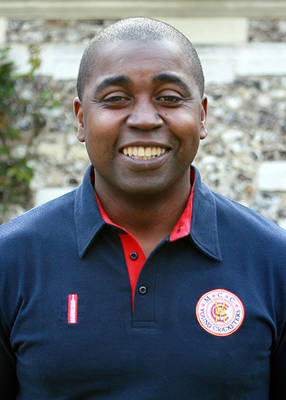- Home
- News, Articles & Reviews
- All Sport
- Cricket
- Cycling
- Football
- Golf
- Horse Racing
- Rugby Union
- Angling
- Archery
- Athletics
- Basketball
- Bowls
- Boxing
- Croquet
- Dance
- Darts
- Diving
- Duathlon
- Equestrian
- General
- Gymnastics
- Hockey
- Martial Arts
- Modern Pentathlon
- Motorsport
- Mountain Biking
- Netball
- Padel
- Parasport
- Polo
- Powerboating
- Powerlifting
- Rowing
- Rugby League
- Running
- Scuba Diving
- Shooting
- Skiing
- Skittles
- Snooker
- Squash
- Swimming
- Table Tennis
- Tennis
- Triathlon
- Tug of War
- Walking
- Walking Football
- Water Polo
- Weightlifting
- Wheelchair Tennis
-
Sport
- All Sport
- Cricket
- Cycling
- Football
- Golf
- Horse Racing
- Rugby Union
- Angling
- Archery
- Athletics
- Basketball
- Bowls
- Boxing
- Croquet
- Dance
- Darts
- Diving
- Duathlon
- Equestrian
- General
- Gymnastics
- Hockey
- Martial Arts
- Modern Pentathlon
- Motorsport
- Mountain Biking
- Netball
- Padel
- Parasport
- Polo
- Powerboating
- Powerlifting
- Rowing
- Rugby League
- Running
- Scuba Diving
- Shooting
- Skiing
- Skittles
- Snooker
- Squash
- Swimming
- Table Tennis
- Tennis
- Triathlon
- Tug of War
- Walking
- Walking Football
- Water Polo
- Weightlifting
- Wheelchair Tennis
We are hiring! Please click here to join our growing magazine delivery team in Gloucestershire!
Areas
Sport
Tags
Archive

Back in the Day: Mark Alleyne, Gloucestershire all-rounder and ‘King of Cheltenham’
Author: Roger Jackson, Posted: Wednesday, 28th June 2017, 09:30, Tags: Back In The Day
Talk to some near 50-year-olds about their sporting achievements back in the day and they can sometimes be a bit vague about the details.
That’s not the case with Mark Alleyne, though, who captained Gloucestershire to seven one-day trophies in a glittering career that spanned the best part of 20 years.
It’s because his three children - Jasper, 13, and 12-year-old twins Max and Alice - are of an age where they want to know more about how dad became one of the most influential one-day players in the country, both as a captain and as an all-rounder.
“I have started to think about it a lot more,” said Alleyne, now 49 and the cricket professional at Marlborough College. “The kids play a lot of sport and they’re starting to understand it. They’ve been asking a few questions about some of the things I did.
“It’s nice because I hadn’t really thought about it too much before then but they have brought back some very good memories. Gloucestershire was a big part of my life and I’m very proud of those times.”
Alleyne, who took on pretty much every role during his time at the club - batsman, bowler, captain, brilliant cover fielder, wicketkeeper, player/coach and head coach - has every reason to look back on his time in cricket with pride.
It was a journey that began many air miles away from Gloucestershire, however, on the sun-kissed cricket-mad Caribbean island of Barbados.
Born in London, the young Alleyne moved to the West Indies with his family at the age of four and was to stay there for the next 11 years.
Cricket in that part of the world was huge in the 1970s and 1980s and Alleyne embraced it with open arms.
“My dad was a big cricket enthusiast,” he said. “Cricket was very vibrant and in those days the local teams were fairly dominant against the touring schools from England.”
Alleyne has happy memories of his schooldays playing cricket.
“We used to organise our own games when we were growing up,” he said. “We’d get to school as early as possible so that we could have a bat.
“The first players there got to open the batting. I was pretty keen and sometimes I’d get to school as early as 6am.”
That wasn’t the only challenge facing the young Alleyne in those days however.
“The aim was always to try to carry your bat,” he said. “You wanted to be not out when the school bell went because it meant you could continue batting during the school lunch break.
“Quite often the best players didn’t play in the mornings but they’d all play at lunchtime so that was a real test.”
As you might expect Alleyne passed all his cricket tests with flying colours.
By the age of 13 he was captaining the school’s under-15 team to success in a major tournament - the first indication that there was a smart cricketing brain working overtime beneath that cool exterior.
And it wasn’t just his captaincy that was impressing. His form with the bat was pretty good too as he became one of the first schoolboys in the Caribbean to hit a double hundred.
Two years later, however, he followed his brother Steve, who was three-and-a-half years older than him, back to England.
His family wanted him to be eligible to receive a grant to attend university in this country and he needed to spend three years in England to qualify.
He went to a school in Hackney and although it wasn’t a cricket school Alleyne “got some fortune”.
“They knew about my cricket and one of the teachers at a neighbouring school was involved with London Schools Cricket and invited me along,” he said.
“It went pretty well and I played for Middlesex’s under-17s and under-19s as well as Haringey Cricket College.”
Steve Alleyne, meanwhile, was also a decent cricketer and got invited down to Gloucestershire for a trial.
Mark went with him - “I was a keen young brother who followed him,” he said.
It was to turn out to be one of the best decisions he ever made because Steve’s team were short of players so Mark stepped in to help out.
“I did okay,” said Alleyne modestly, “and I got invited back.”
He did so well, in fact, that at the at the age of 18 he was signing a three-year contract with the county, with the only sadness being that Steve wasn’t taken on as well.
Any disappointment he felt about his brother was put to one side, however, as Alleyne was catapulted into the first team almost as quickly as a delivery by the great Courtney Walsh.
“I made my county championship debut against Kent at Gloucester Winget and you can tell how long ago it was because Derek Underwood was in their team,” he laughed.
So how did he get on?
“Okay,” he said. “I got a single figure score in the first innings but in the second innings we were chasing 220 and I shared an unbroken 40-run partnership with Jeremy Lloyds to get us home.”
In those days Gloucestershire had a strong championship side built around the three-pronged pace attack of Walsh, Syd Lawrence and Kevin Curran.
Alleyne had been handed his chance because Bill Athey had been called up for England duty and some of the other players he shared a dressing room with in those days were Jack Russell, David Graveney and Phil Bainbridge.
If Alleyne felt overawed in such exalted company it did not show in his performances and he was soon becoming the youngest ever Gloucestershire player to score a first-class century.
It came against Sussex at Bristol and was special for more than just the fact that he reached three figures.
Alleyne takes up the story: “Me and my brother used to play a lot of marble cricket with miniature cricket bats when we were growing up.
“Because he was older he’d always get to pick his team first. I’d often be Pakistan and of course I’d always be Imran Khan.
“Imran was playing for Sussex in that match at Bristol and there’s a picture of me walking off with my bat raised and he’s just behind me applauding. I’m not nostalgic but that remains my favourite cricket picture.”
Alleyne’s first century may have been scored at Bristol but it was at Cheltenham where he enjoyed batting most.
“They used to call me the King of Cheltenham,” he chuckled.
So why did he do so well there?
“Bristol was a fairly low wicket which wasn’t conducive to my natural style of play,” he said. “At Cheltenham there was always a nice consistent bounce. It was a tennis ball bounce and the conditions were much more like the ones I’d been used to in Barbados.
“The other thing about Cheltenham was that you could be struggling a bit but because the ball flies around so quickly you could soon find yourself on 40, 50 or 60.
“I bowled alright there too. There was always plenty of pace in the wicket and I remember when Mike Smith got called up to play for England.
“We were playing Durham and I got five wickets in the first innings and four wickets in the second. They were my best ever match figures and Mike still says I got all his wickets!
“I made 160 in that match as well so it was my most complete all-round match.”
By then, of course, Alleyne had become as much a fixture in the Gloucestershire set-up as the tents at Cheltenham Festival.
But it hadn’t always been the case. Despite his early successes Alleyne found himself on the sidelines in 1990 when Eddie Barlow was coach.
He was recalled for a championship game against Surrey, no easy task against a side that included Waqar Younis and Martin Bicknell.
And as is so often the case he needed a big slice of luck before producing the innings that convinced everyone watching that his was one of the first names that should be on the teamsheet.
“I was dropped at third slip before I’d scored,” recalls Alleyne. “I went on to make 100, it was a pretty good one in the end. That’s where it all really started for me because after that I played in every championship game until 2001 - 181 consecutive matches.”
Not long after that landmark game against Surrey he was setting another Gloucestershire record, becoming the youngest player at 22 to score a double century for the club.
It was against Northamptonshire at Northampton and Alleyne recalled: “It was when four-day cricket was being introduced. They’d play a couple of four-day games at the start of the season and a couple at the end.
“I just remember having a lot of time to bat. I was very pleased with that knock, it was a good day.”
By the mid-1990s the face of Gloucestershire cricket was changing. Graveney and Bainbridge had long gone, Lawrence’s career had been cruelly cut short by injury and Walsh’s reign as the best new ball bowler in county cricket was nearing its end.
It was a period when Andrew Symonds was announcing himself to the cricketing world, both as a batsman and a fielder.
“He was a fantastic cricketer, so dynamic,” said Alleyne. “He was a great fielder and his batting was something else.
“I remember he used to say when he came in at lunch not out that he was going to try to hit the first ball after the break for six. He never held back and did it a few times.
“We just let him go, it was part of his stimulation. He changed games and you never wanted to suffocate that.”
Alleyne’s own game was given further stimulation when he was offered the county captaincy which came his way in 1997.
“It wasn’t something I’d ever thought about,” he said. “I always liked to be involved but it was still a surprise when I was asked. I wasn’t daunted by it though.”
The overseas player question was one of the major considerations in the first couple of years of Alleyne’s captaincy but in the end the new skipper said it was a straightforward decision to go for Ian Harvey in 1999.
“The World Cup was in England that year and we as a club had said all along that we wanted our overseas player to be available for the whole season,” he explained.
“Courtney was going to retire from one-day international cricket but then decided to play on so we were always going to go for someone like Ian Harvey who was outside their country’s top 15.”
While Harvey numbered the great Shane Warne, among others, in his fan club, no-one in their wildest dreams expected the Australian to have the impact that he did.
Gloucestershire had had a good championship season in 1998 - in fact, bizarrely, it was their top eight finish in the longer format of the game that entitled them to compete in the 1999 Benson and Hedges Super Cup which was open to just eight teams because of the World Cup.
Alleyne reckons that the curtailed competition worked massively in favour of a club that had not won any silverware for 22 years.
“We had a fairly uncomplicated route to the final,” he said. “We had no time to panic. We played well twice and found ourselves in the final.”
And once they booked their place against Yorkshire in the showpiece occasion at Lord’s it was their approach to the final itself almost as much as their performance on the day that ensured that it was going to be a special moment in the county’s history.
“We didn’t want to change anything just because it was a final,” said Alleyne. “What we did do was embrace the day. We enjoyed the fact that we were playing on a big occasion and in front of a big crowd.
“The way we approached the final gave us the belief that we could do it again.”
Alleyne, of course, was instrumental in securing victory, scoring a high class century as a Yorkshire attack including Chris Silverwood, Ryan Sidebottom and Craig White was put to the sword.
“It was one of those days when everything went right,” said Alleyne modestly. “We’d had a decent start and Rob Cunliffe kept the energy levels going. He was a very willing runner.
“In the context of the game it was probably my best innings. It was certainly nice to play an innings which wins a game.”
That trophy success was the start of an incredible run of success for Gloucestershire which produced a further six one-day trophies under Alleyne’s captaincy up to 2004.
“We had so many players who could win games,” Alleyne said. “That was one of the things that was so good about us because we could all be match-winners.”
Alleyne’s one-day form had already been noticed by the England selectors before Gloucestershire’s Super Cup win in 1999 although he admits his century against Yorkshire “was all the sweeter” after he was left out of the World Cup squad.
“I went to Australia in 1998/99,” he said, “but I had to leave the tour halfway through when my dad died. I didn’t get a look-in for a while after that.”
Alleyne was selected for further tours - four in fact - but his England potential remained unfulfilled and he never played a one-day international in this country.
“I enjoyed playing for England but I never felt as though I had a defined role,” he said. “I’d bat seven or eight and bowl sometimes. We’d go to Asia and I couldn’t understand why we were playing five seamers and the opposition were playing four spinners.
“I scored 53 against South Africa in February 2000 but hardly played again after that.”
Alleyne would probably have benefited had someone like John Bracewell been involved in the England set-up.
The two of them worked together closely during the county’s glory years and Alleyne said: “The dynamic between us was ideal.
“He was fresh and wanted to do well. He wanted to become an international coach and brought an energy that we needed and suited us. He encouraged players to manage themselves and it worked.”
While Alleyne was clearly the man in charge on the pitch, he had his go-to players who helped him when the going got tough.
“Jack Russell adopted the fielding captaincy,” he said. “He checked the angles and made sure the fielders were on the money. I didn’t have to worry about that.
“Me and Martyn Ball always bounced ideas off each other and Ian Harvey and Mike Smith would also have ideas. Mike Smith could be quite conservative but I don’t mean that in a bad way. In fact, it was good because there were times when we thought we were invincible.”
Alleyne took on the player/coach role when Bracewell got the coaching job he always wanted with New Zealand and, typically, enjoyed immediate success as the county won the NatWest Trophy in 2004.
He said combining the roles of captain and coach was not too different from being just the captain - “We still had the rest of the coaching staff,” he said.
His final game for the county came in 2005 and in the two years he was head coach he guided the team to T20 finals day where they were beaten in the final by Kent.
That remains the club’s best performance in county cricket’s quick-fire format although Alleyne said he was “disappointed” not to have won the competition.
Since leaving Gloucestershire in 2008 he has been a coach at the National Performance Centre at Loughborough and was head coach at the MCC for seven years.
These days he’s looking after the up-and-coming cricketers at Marlborough College and if the pupils there have any sense they will hang on to his every word because Mark Alleyne has seen it, done it and always comes up smiling.Copyright © 2024 The Local Answer Limited.
Unauthorized use and/or duplication of this material without express and written permission from this site's author and/or owner is strictly prohibited. Excerpts and links may be used, provided that full and clear credit is given to The Local Answer Limited and thelocalanswer.co.uk with appropriate and specific direction to the original content.More articles you may be interested in...


© 2024 The Local Answer Limited - Registered in England and Wales - Company No. 06929408
Unit H, Churchill Industrial Estate, Churchill Road, Leckhampton, Cheltenham, GL53 7EG - VAT Registration No. 975613000You are leaving the TLA website...
You are now leaving the TLA website and are going to a website that is not operated by us. The Local Answer are not responsible for the content or availability of linked sites, and cannot accept liability if the linked site has been compromised and contains unsuitable images or other content. If you wish to proceed, please click the "Continue" button below:




